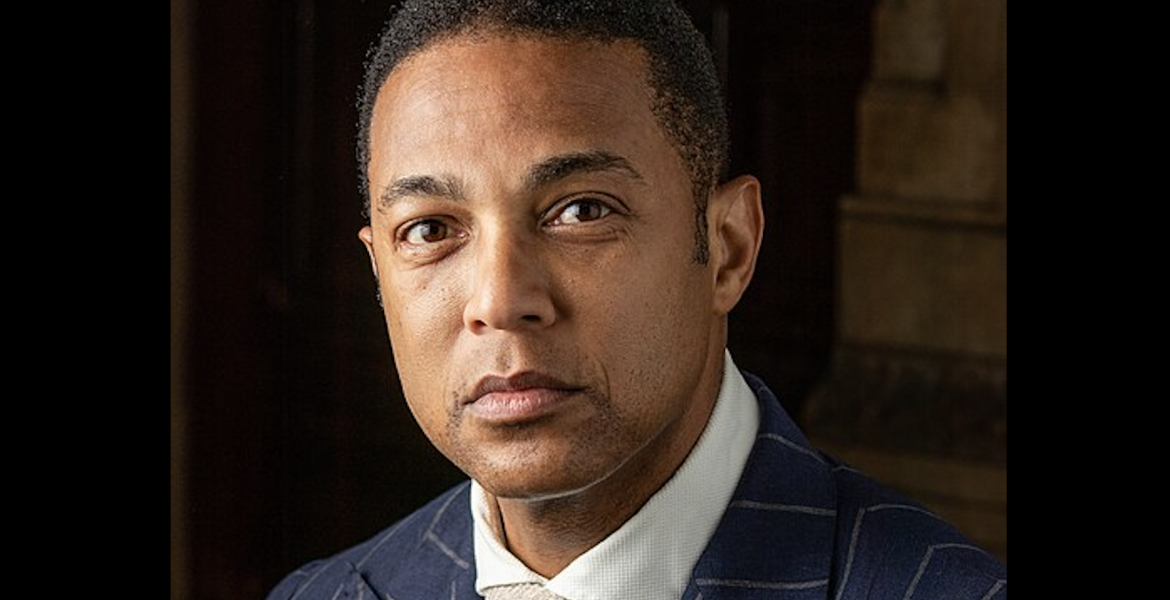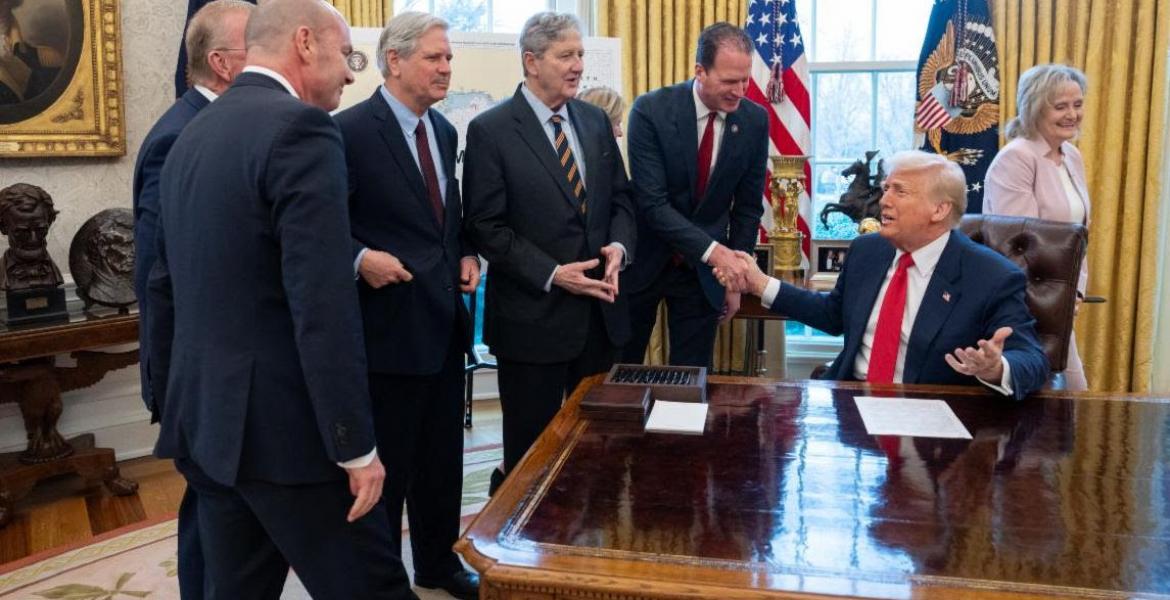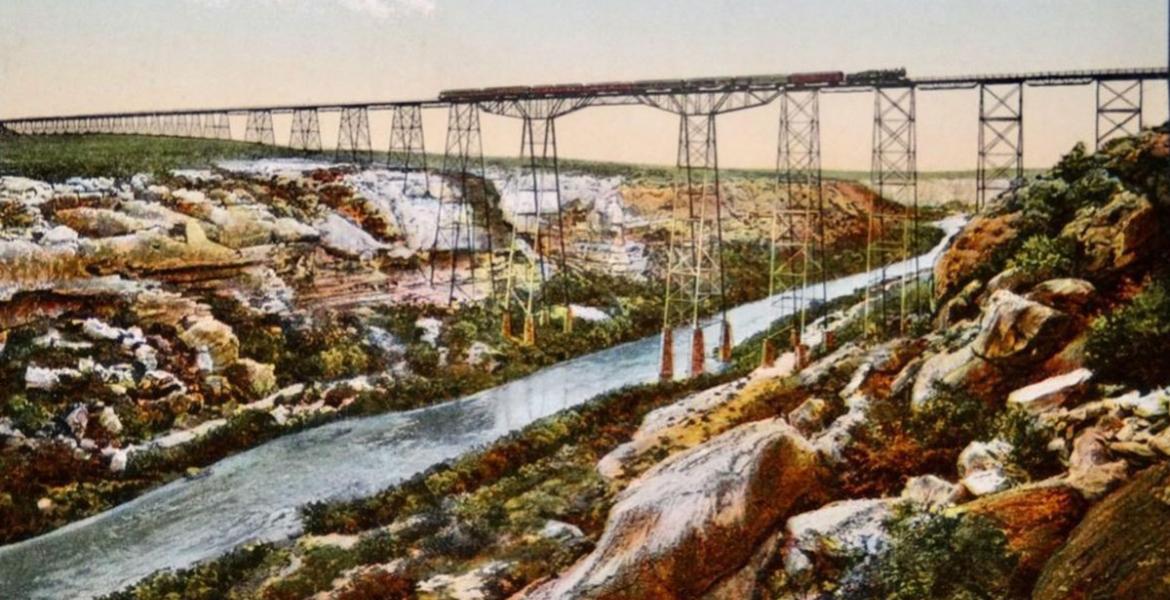Well, it’s finally here. The end as we know it—at least in Fear the Walking Dead. In Episodes 1 and 2, The Walking Dead, and now Fear the Walking Dead, fans got to witness how an unknown virus started to slowly make its way across Los Angeles (and the world), leaving people sick and doing strange things. Police have killed black men, well men and women of all colors really, but no one can convince the angry crowds of this. As a result, and police continually failing to communicate with the city’s citizens about what’s taking place, riots, similar to the 1992 L.A. Riots and what we have witnessed today in places like Ferguson, are a reality that shows an end delved in chaos, madness, and an animal pack mentality where thugs with hoodies and gangsta’ headband masks go around the city turning over cop cars, jumping up and down on top of them, burning, looting, and destroying businesses and anything they can get their hands on.
In this madness, the people fail to see the men and women, truly animals now that they have reanimated with no conscious, throwing people to the ground and biting their flesh. Instead, all they see are the police with their riot gear heading towards them, and in response, they want revenge. As this chaos unfolds in Episode 3, viewers, or the witnesses of the end, have a hard time determining who the true animals are as humans and zombies alike meld together in utter and complete violence and destruction.
L.A is no longer the City of Angels, but rather a place where God remains silent and absent, and the place known for its capitalism and starlight power burns in the darkness. Not to mention, the non-mad people who know something is wrong tries to hold on to life as they know it—a life full of sheltering and enabling, false idols and weakness.
The Shielder and the Enabler
In the first two episodes, FTWD viewers learn that Travis is an educator and Madison a counselor. For two educated people who help others, they lack the ability to control what’s going on in their own homes. Part of that comes from enabling and sheltering their families from reality. For instance, in the first scene, Chris stares at all the chaos and madness outside of Daniel Salazar’s barber shop. He watches as masked thugs turn over a cop car and continue to set things aflame. As he continues to stare, a hooded man, or now a zombie, stares back at the teenager, and at the same time Chris flinches at the sight, Travis tells him to come away from the window in an attempt to shield his son from the happenings outside.
Immediately the scene changes and Madison, who is in the process of grabbing water and more pain pills for Nick, also stares outside. Her middle-class neighborhood is far away from the bad area where Travis, his ex-wife Eliza, and Chris remain stuck in. Despite the quiet, however, a sense of foreboding creates an unseen tension, especially after Madison hears a scraping noise. Alicia hears it too and asks, “What was that sound?”
Although Madison knows what’s going on, she still refuses to tell her daughter, just like she refuses to stop enabling her son Nick’s drug addiction. She tells Alicia she doesn’t know what the sound is, and acts nonchalant as she hands Nick his drugs and the water. Even after Alicia asks about what Mr. Dawson did to his family and saw him on top of his wife as she screamed in the previous episode, Madison downplays things and says, “They’re in the house, okay?” While they are having this discussion, Nick begins crushing the pills because it has a quicker affect on him. Madison tells him the goal is to wean him off of the pills, but Nick responds with, “I’m not there yet. Besides, who’s the expert?”
In reality, Madison should be the expert since she’s a counselor, but this shows the irony of the situation because Madison is not acting like the professional who can help her son, but rather contributes to his problem of being a drug-taking expert.
Just as Madison contributes to Nick's problem, Travis, who has the capability of educating his son in a professional way as the riots continue around them, refuses to do so in an attempt to parent. Chris, however, isn’t dumb and knows things are getting worse, and wants answers from his father. Like Madison, Travis downplays things and tries to make Chris believe they’re safe at the barber shop and everything will be fine, but that’s obviously not the case with the sounds of sirens, screaming, howling and gunshots echoing outside the building.
Overall, Travis and Madison, as many parents do, believe they’re doing the best thing by keeping Chris and Alicia in the dark; but in reality, they’re putting their lives more at risk by not telling them. In fact, when Alicia gets chased by their neighbor Susan, who is now a zombie, she almost doesn’t make it over the fence in time. Although it’s obvious Susan, and previously Mr. Dawson, are not normal, both Travis and Madison still try to minimize the situation, which only frustrates Alicia and Chris more and leads to more resentment rather than gratitude.
The False Idols
Everywhere we look today, people in the U.S. love and honor things that the tenets of Christianity define as “false idols.” The writers of FTWD really play on this theme throughout the third episode. As mentioned in the introduction, Los Angeles is known for idolizing wealth, star power and capitalism, and constant references throughout the dialogue highlight how humanity holds them dear.
The first instance of this occurs when the walls in the Salazar’s barber shop start to bubble and the occupants realize they have to flee. As they prepare to do so, Daniel tells his wife and daughter to grab "la plata" and "el dinero" in Spanish. La plata means both money and silver in Spanish while el dinero carries the same meaning. Whether he’s referring to silver and the money, or he’s putting a double emphasis on saving the money remains questionable because of the double entendre. Either way, for a family who are supposed to be humble, Godly, and good, Daniel’s focus on the money contradicts these ideas. Instead of grabbing sentimental things, or even the pictures of Jesus and La Virgen de Guadalupe (the Virgin Mary) from Griselda's shrine, Daniel leaves into the chaotic streets with la plata y el dinero while Griselda follows holding on to her rosary, which symbolizes the contradiction.
Again, in a simultaneous scene, to keep her kids’ minds off the Dawsons and the strange sounds they keep hearing, Madison brings out Monopoly, and right away the kids get excited to play their favorite game that promotes making lots of money, buying up property and businesses and avoiding jail in the process. As they prepare to play, Nick says, “I’m going to wipe the floor with you guys; I can feel it.” This statement alludes to the concept of manifest destiny, or what Alicia referred to as "Kindergarten Capitalism, and doing what it takes to move up to the ranks of power and money. Interestingly, this is the first time Nick appears as or more excited about something other than his drugs; and as they’re playing their capitalistic game, the scene reverts back to Travis and his group trying to flee the fallen capitalistic society they lived in and loved so much. By combining these two scenes, viewers get to witness the final roll of the dice before it all ends, which is why, when Travis and his group leave the city, everything goes black.
Perhaps the most telling scene to elude to false idols occurs toward the end of the show when Madison and Travis are about to leave. Madison gets into the car where Nick is waiting, and he says, “I need a couple more Mom,” meaning drugs. At first, Madison says nothing, but then she goes into her purse and pulls out the bag of pills and hands them to Nick. Nick says in response, “Is that all we have?”
“I gave the rest to Griselda,” Madison responds.
“Why?” Nick asks.
“She needs it,” Madison replies.
Madison then goes on to say that Griselda needs the pills because she’s in pain; however, Nick calls Griselda a stranger, and reiterates that he's also in pain. His pain, however, is mental rather than physical, and when he throws his head back against the seat like a two-year-old child throwing a tantrum. Madison says, “No, I’m gonna help,” in response to his so-called pain.
When she says this, Nick says matter-of-factly, “I don’t need you, Mom. I need my medicine.”
With this comment, Nick proves the thing he idolizes and loves above all, even his own mother, are drugs, despite all the things going on and all the things Madison and Travis have done for him, including breaking the law to help him get his “fix.” Nick’s actions mirror addicts today who love their drugs so much that they are willing to do whatever it takes to get them, even stealing or alienating their family. Their crave for controlled and non-controlled substances is their God.
Human Weakness
Where Nick’s conversation with his mom is the most telling scene, the most telling theme prevalent throughout this episode is that of human weakness. In TWD, fans got to watch a combination of weak and strong characters come together, and in no time, the weak characters either died, or they shed their weaknesses. However, in FTWD, all the characters are weak, even the ones who think they’re strong. The best examples occur with Travis and Daniel.
Travis is weak because he has yet to shed his educator sensibility. He is the patient optimist who tries to help those he loves, and even when people test his patience, he finds a way to soothe things over logically. He has the utmost patience with his angry son, his angry ex-wife, his aggressive girlfriend and Madison’s angry kids who obviously resent him. The Apocalypse, however, isn’t patient.
Also, Travis is a quick thinker, but his humanity almost gets him killed when he confronts his neighbor, Mr. Dawson, who is now a zombie. Even after seeing the man eating a dog, seeing what happened with Calvin and what took place in downtown L.A. with the cops killing people who weren’t dying, and not being able to get Griselda medical help for her injury because of the scene at the hospital, Travis says, “Your sick. We’ll get you help.” Had it not been for Daniel shooting Mr. Dawson in the head, Travis would have died for his compassion; and when Daniel tells him to burn the body so the sickness doesn’t spread, Travis refuses to because the man was a friend. He doesn't stop to think about the effects on the living.
Travis also gets angry with Daniel for trying to teach Chris how to use a gun because “he hates them.” He doesn't consider that with all that's happening, knowing how to shoot will save his son's life. Additionally, Travis keeps Madison from killing their neighbor Susan who is now the Walking Dead. This interference almost gets Susan’s husband, Patrick, killed when he returns home, and the unknowing man has to watch as the U.S. Military shoot his wife in front of him. Had Travis allowed Madison to help Susan, Patrick would have been spared the pain of what happened and he wouldn’t have been exposed to the virus and taken away by the Military. Not to mention, at the end of the show, Travis hugs Madison close to him as they stand in their nice manicured lawn with the Military having taken over the neighborhood, and says, “The Calvary has arrived. It’s going to be better now.” Maybe, Travis hasn’t heard of the dangers of Marshall Law or Jade Helm.
Where Travis wears his sensibility with pride, Daniel wears his machismo with the same emotion, or non-emotion. From the beginning, Daniel is standoffish and protective of his family when Travis, Eliza and Chris invade his shop. This protective nature is typical of a Latino man. His family also represents the typical family dynamic where the machismo husband is the money maker and the protector of the family while the wife is dutiful, obedient, Godly and the epitome of La Virgen de Guadalupe, or the Virgin Mary in non-Spanish terms. They also have the good daughter, who, under normal circumstances, doesn’t question her father until now, which Daniel shows his disapproval of. She too is the good girl who wears a long skirt, sweater, and also stays true to La Virgen. Both women have to trust in Daniel to make the right choices without question.
However, Daniel’s choices and machismo reflect his inability to work with others, which could save his life and that of his family. Although Travis is weak, leaving L.A. is definitely the right option. Everyone in the Zombie Apocalypse knows, “Movimiento es vida.” Daniel refuses to leave with the others and tells his daughter a cousin will come for them and a doctor will tend to Griselda, who is in danger of dying from blood poisoning. Instead of putting her safety first and staying with Eliza, who has the medical training to help help her, he wants to go separate ways from Travis, whom he views as “debil” or weak. He feels that because he can use a gun and accepts things for what they are, he will provide the protection his family needs. His stubbornness and machismo, however, will bring the demise of his family. Staying together is the only way the families have a chance at survival. That’s Apocalypse Training 101 from TWD.
The Final Rating
Overall, there was more action this week, and we’re getting closer to The End, but it feels like things keep dragging on. Granted, what makes this show, and the TWD, is the reality element of it. The show reflects true life and how our bad habits continue to bring us closer to our demise.
We coddle our children and don’t make them take responsibility for our actions. We try to fix their problems for them instead of teaching them how to do so on their own. Then there are the idols. We claim to be a Christian society, but our country today is immersed in racial divide and political extremism. We have lost our ability to communicate with one another, and we no longer value humanity and God, but rather money and capitalism. Additionally, people from all backgrounds and social classes suffer from substance abuse, whether that’s pain pills or street drugs. There is a “fix” for everything. If someone has a back ache, they don’t go get a message or go see a chiropractor; instead, they go to Shannon’s Emergency Room for a shot of Vicodin or Morphine. Of course, we could also go all day talking about the weakness of man, but Travis and Daniel’s weaknesses do a good job of summing things up.
Despite all that, however, those of us who have watched this show from the start get it. Therefore, FTWD has to move forward to avoid losing a good thing. It’s understandable that the directors want to project things in a realistic way to show the end won’t happen in a couple of hours or in a few days. It’s a gradual process; but with TWD starting in a few weeks, the next few shows have to get to the point and get us where we need to be to understand how Rick Grimes and all our favorite characters came to be.
With that being said, San Angelo LIVE! gives this week’s FTWD a B+ because the show needs to pick up the pace a little more.
Subscribe to the LIVE! Daily
Required






Comments
Listed By: Emily Carter
TWD develops great archetype characters can fTWD do the same?
When society falls apart, warriors become heroes. In the original, those warriors are an Archer, a law & order Western Sheriff, a Samurai swords woman, a Sharpshooting Commando. And they work very well although I think the writers blew it when they put the Virgin Princess (Beth) up against the Temple Guardian (Police Woman Dawn), and the princess gets shot, (thrown into the volcano).
Now in Fear, I think I see the start of a new warrior archetype in the Daniel Salazar character. Who is Salazar?
Not just the most interesting character in the show so far, but one with a past in El Salvador during that country’s evil and apocalyptic Civil War [echos of the Z-apocalypse]. So we see him take a shotgun away from Madison and shoot the zombie, who being a zombie does not die, so with massive-emotional-cool Salazar steps closer and blows the guy’s brains out.
In that moment, Salazar has proved his strength. Later when he calls Travis WEAK I hear echoes of the South American term “Strong Man,” often associated with a dictator.
Will Salazar become the Strong Man Archetype? Not lovable, not your best friend but one who is in harmony with death, destruction, action and hard rule. That would make this show worth watching even though through Ep. 3 it has lacked a lot of promise.
Can Ruben Blades play a ruthless character capable of inheriting the HEISENBERG persona: “SAY MY NAME!”
“Calling Walter White! You’re needed at the Z-apocalypse!”
- Log in or register to post comments
PermalinkListed By: Brandy Ramirez
That's an interesting take Emily. I definitely see that aspect in Salazar's character. It will be interesting to see how that pans out. I looked at his character from a cultural perspective. Latino men always tend to portray that machismo, and in some cases it can be positive, negative, or both. Because we are just starting and I see the weaknesses in all the characters, I felt maybe that would be his; however, I can definitely see this side too. Blades has always played the more mellow roles, so I would like to see if he can pull off the ruthless warrior archetype. I actually foresee Travis transforming from the balanced liberal educator to a more aggressive character as well, so maybe that will be intention for both. Hmmmm....great questions. I hope the next episode does reveal that. Something definitely has to move us forward.
- Log in or register to post comments
PermalinkListed By: REBECCA KINGSTON
thanks for your analysis brandy, i had not considered the false idol nor the enabler aspect of it. i look forward to reading more dissections as the series progresses.
- Log in or register to post comments
PermalinkListed By: Brandy Ramirez
Thank you, Rebecca. I enjoy writing about the series, so I appreciate the feedback.
- Log in or register to post comments
PermalinkListed By: Emily Carter
Actually I found your review refreshing in its analysis -- I like the spin you put on it and basically agree with the symbols and motifs. One of the most amazing elements of TWD and fTWD is the depth of meaning that exists in the story. So while you focused on themes relating to the superficial, monetized life in LA -- totally valid POV -- I focus on the writer's creation of fictional characters, i.e., using archetypes.
So in the context of the LA 'life' [read obsession with money and glamor] combined with the religious, what kinds of archetypes are needed to tell the story of discovery, survival and rebuilding a civil order?
In TWD, warriors are needed for survival -- the western-cowboy-sheriff-warrior resonates with the mythology of the American West and the establishment of law & order in the midst of Native Tribal resistance.
City institutions -- school [teachers], church [religious leaders], government [politicians] -- maintain civil society. Especially since the writers have decided to make 'the police' the enemy.
So if Travis and Madison are the teachers, and Griselda is the religious leader, is Daniel Salazar going to be the political leader -- strong man dictator? Or, will we be seeing other archetypes?
- Log in or register to post comments
PermalinkListed By: Brandy Ramirez
Emily,
That is what I have always loved about film and literary criticism. There are so many ways to look at a text or a film, or in this case, a show. If writers and directors do their job right, people like you and I can spend a lengthy amount of time dissecting all the things that make the show work (or not work). I was never a zombie movie or show person, but when The Walking Dead came out, I really became hooked on the depth of the storyline, the themes, and the characters. Since this is a spinoff, I couldn't wait to see how things would pan out. So far, so good. However, as we both have said, things have to pick up a little bit more. Sometimes, writers can get too caught up in the details.
Thank you for the interesting conversation. I will definitely be watching the character archetypes more closely to see how things pan out. I look forward to our next conversation about it.
- Log in or register to post comments
PermalinkListed By: Rita Repulsa
Real men take charge: https://youtu.be/sGUNPMPrxvA
- Log in or register to post comments
PermalinkListed By: Brandy Ramirez
Rita,
That is one of my favorite movies. It's a great satire that reflects where we are headed today. I could write a 30-page essay on that movie alone. I don't know what's worse--the Walking Dead, or the Walking Stupid. Either way, we're pretty close to both. Thanks for the laugh.
- Log in or register to post comments
PermalinkListed By: Rita Repulsa
Please share some.
- Log in or register to post comments
PermalinkPost a comment to this article here: